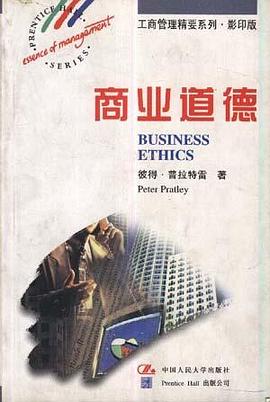Contents
1 The nature and purpose of ethical reflection
1.1 Introduction
1.2 Autumn 1990: immoral supplies to Iraq?
1.3 A definition of ethics
1.4 The subject-matter of ethics - moral behaviour
1.5 One major ethical issue - relativism
1.6 The difference in methods with moral theology
1.7 Moral judgements are normative judgements
1.8 Characteristics of moral standards
1.9 Synopsis
1.10 References
2 Business ethics: mediating between moral demands and
interest
2.1 Business ethics is normative
2.2 The relative autonomy of business morality
2.3 The limited scope of normative business ethics in this text
2.4 Special studies in business ethics
2.5 Evidence from surveys on the role of ethics in business
2.6 A theory on voluntary mediation: participatorv ethics
2.7 Twu examples illustrating the predominant role of interests
2.8 Synopsis
2.9 References
3 Moral responsibility in general
3.1 Introductio
3.2 The idea of man behind free and consdous behaviour
3.3 Towards a balanced concept of freedom
3.4 Further remarks on the given circumstances: life areas
3.5 A partial definition of individual responsibility
3.6 A second and more complete definition of responsibility
3.7 Direct implications relevant to modern issues
3.8 Synopsis
3.9 References
4. Moral responsibility in the business sphere
4.1 The gist: public accountability and entrepreneurial
responsibility
4.2 Can a company be held responsible?
4.3 Moral corporate excellence
4.4 Inference 1: attribution theory on managerial mistakes
4.5 Inference 2: entrepreneurial performance and public
accountability
4.6 Inference 3: groupthink in coping with technological
innovation
4.7 Three classical theories of product responsibility
4.8 Examples of liability issues
4.9 Corporate responsibility
4.10 Synopsis
4.11 References
5 What is in it for all parties concerned?
5.1 An outlook based on interests
5.2 Interests combine moral goals and moral principles
5.3 A practical business philosophy based on interest
5.4 Distinguish interests from egocentric materialism
5.5 Unethical attitudes on moral issues
5.6 The overdone business ethics required by utilitarianism
5.7 A view fit for moral commerce: enlightened egoism
5.8 Synopsis
5.9 Examples and questions
5.10 Rt'terences
6 Is this policy decent, right and just?
6.1 Introduction
6.2 Manipulative and non-manipulative relations
6.3 The need for duty ethics in modern societies
6.4 The pluralistic duty-based view of human nghts
6.5 The deontological supernurm of Kant
6.6 Standards of justice
6.7 Deontological codes for inner constituents in business
6.8 NORM by Ron Green
6.9 Incorporating NORM-based rules in enlightened egoism
6.10 References
7 Does this policy foster desirable skills?
7.1 Introduction
7.2 A first idea of classical virtue
7.3 A modern interpretation of Aristotelian moral philosophy
7.4 Keystones of virtue ethics
7.5 A psychological structure geared towards human excellence
7.6 Revised accounts of virtue of little use for business ethics
7.7 Comparing virtues of character and excellence in crafts
7.8 Virtue theory is back in town
7.9 Productive practices and team motivation
7.10 Some prospects for virtue in business ethics and managementtheory
7.11 References
Index
· · · · · · (
收起)






















